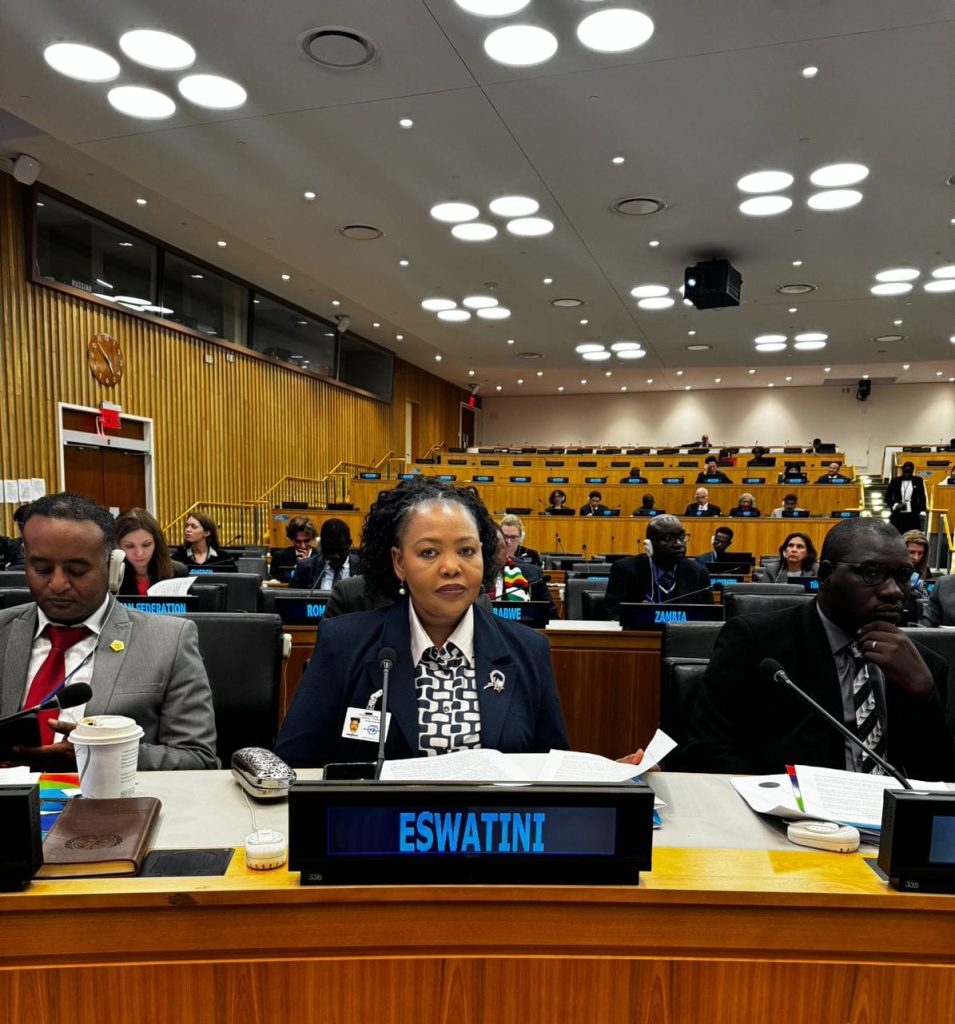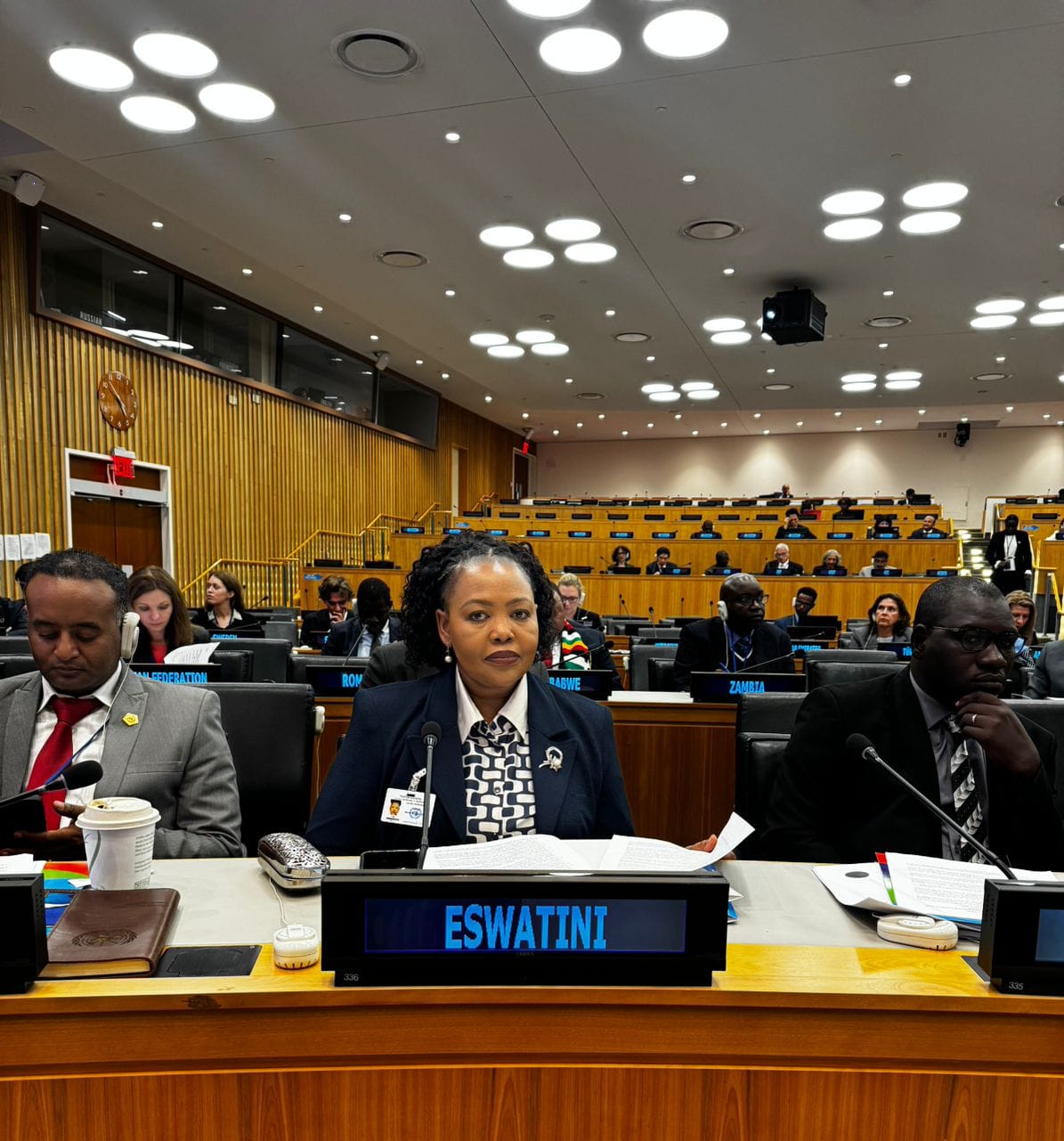
By Lwazi Dlamini
Pholile Shakantu, the Minister of Foreign Affairs and International Cooperation, believes that Landlocked Developing Countries (LLDCs) should harness innovation and technological progress to overcome challenges in trade and infrastructure.
The Minister shared these insights during the 23rd Annual Ministerial Meeting of Foreign Ministers of Landlocked Developing Countries, which took place alongside the #UNGA2024 in New York, USA. The meeting was themed: “Building Momentum towards Gaborone: Partnering for a Decade of Action and Transformation in LLDCs.”
In her opening remarks, Minister Shakantu expressed: “The Government of the Kingdom of Eswatini supports the initiative to transform and diversify our economies structurally, establish an infrastructure investment finance facility, and ensure the availability of sustainable and accessible climate finance to address the needs of LLDCs, among other vital priorities.”
RELATED:Prime Minister calls for inclusion of Taiwan in international system
Minister Shakantu further noted: “In this context, we must also utilize innovation and technological advancements to close the gaps in trade and infrastructure.
igital solutions can open new pathways for LLDCs to engage in the global economy, enhance e-commerce, improve connectivity, and foster inclusive economic growth.”
In 2013, the World Economic Forum published a report examining how technology can invigorate economies. It highlighted that during times of slow growth and ongoing volatility, many countries seek policies that stimulate growth and generate new employment opportunities.
Information Communications Technology (ICT) is not only among the fastest-growing sectors, directly creating millions of jobs; it also plays a crucial role in fostering innovation and development.

With mobile subscriptions nearing global population figures at 6.8 billion, 40% of people worldwide are already online.
In this evolving landscape, economic competitiveness hinges on the ability to leverage new technologies. Here are five significant economic impacts of ICT:
1. Direct Job Creation
The ICT sector is anticipated to remain one of the largest employers. Computer and information technology jobs in the US are projected to grow by 22% by 2020, resulting in 758,800 new positions. In Australia, the development and operation of the new super-fast National Broadband Network will support 25,000 jobs annually. Job growth varies across segments; for every job in the high-tech sector in the US, five additional jobs are created in other industries. By 2013, the global tech market is expected to grow by 8%, generating jobs, increasing salaries, and expanding the range of available services and products.
2. Contribution to GDP Growth
Research from various nations demonstrates a positive correlation between ICT and economic growth. For instance, a 10% increase in broadband penetration correlates with a 1.4% rise in GDP growth in emerging markets, and in China, this figure can soar to 2.5%. The surge in mobile data usage due to enhanced 3G connections boosts global GDP per capita growth by 0.5%. The Internet contributes to 3.4% of overall GDP in some economies, primarily driven by e-commerce activities.
3. Emergence of New Services and Industries
A multitude of public services is now accessible online and via mobile devices. The shift to cloud computing is a pivotal trend in modernization. Moldova’s government is among the first in Eastern Europe and Central Asia to migrate its IT infrastructure to the cloud and launch mobile and e-services for citizens and businesses. ICT has also given rise to an entirely new sector: the app industry. Research indicates that Facebook apps alone created over 182,000 jobs in 2011, with the Facebook app economy valued at over $12 billion.
4. Workforce Transformation
New “microwork” platforms, developed by companies like oDesk, Amazon, and Samasource, allow for breaking tasks into smaller components that can be outsourced to contract workers, often located in emerging economies. These platforms enable entrepreneurs to significantly reduce costs while accessing skilled labour. In 2012, oDesk reported over 3 million registered contractors completing 1.5 million tasks. This trend has also positively impacted other industries, such as online payment systems, and has encouraged entrepreneurship by making it easier for self-starters to find best practices, legal and regulatory information, marketing, and investment resources.
5. Business Innovation
In OECD countries, over 95% of businesses maintain an online presence. The Internet enables new customer outreach methods and competitive strategies. Social media has emerged as a potent marketing tool in recent years. Moreover, ICT tools within companies help streamline processes and enhance efficiency. The unprecedented growth of connected devices worldwide has created innovative ways for businesses to serve customers.
During her speech, Shakantu emphasized that the unique geographical challenges faced by Landlocked Developing Countries exacerbate their issues, including limited access to global markets, high transport and trade expenses, and vulnerability to external shocks.
RELATED:Japan’s Prime Minister Kishida to resign, paving way for new leader
She noted that these factors impede their full development potential, making partnerships and the commitments established even more vital for achieving sustainable growth.
Minister Shakantu remarked: “Additionally, we cannot ignore the disproportionate effects of climate change on LLDCs, which further intensifies food insecurity and environmental degradation. The Programme of Action must reflect our urgent need for sustainable and accessible climate finance, allowing LLDCs to fulfil our commitments to the Sustainable Development Goals.”
In conclusion, Minister Shakantu stated: “By empowering our youth, advancing gender equality, and building capacity, we can lay an inclusive foundation for long-term development.”
Eswatini is poised to join the Bureau for LLDCs for the term 2025-2026.






